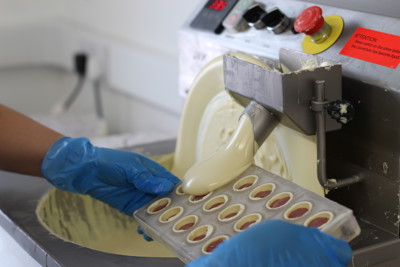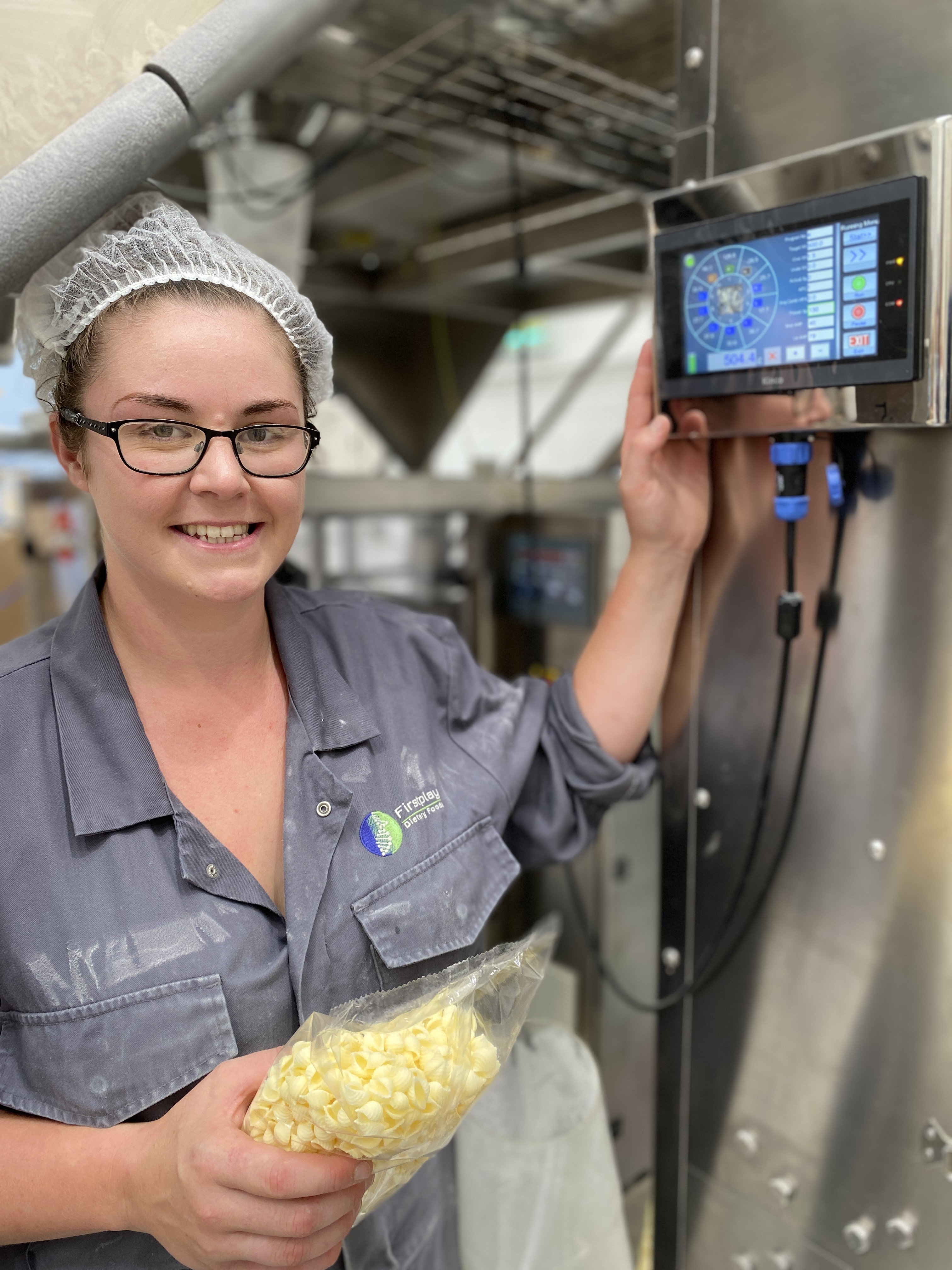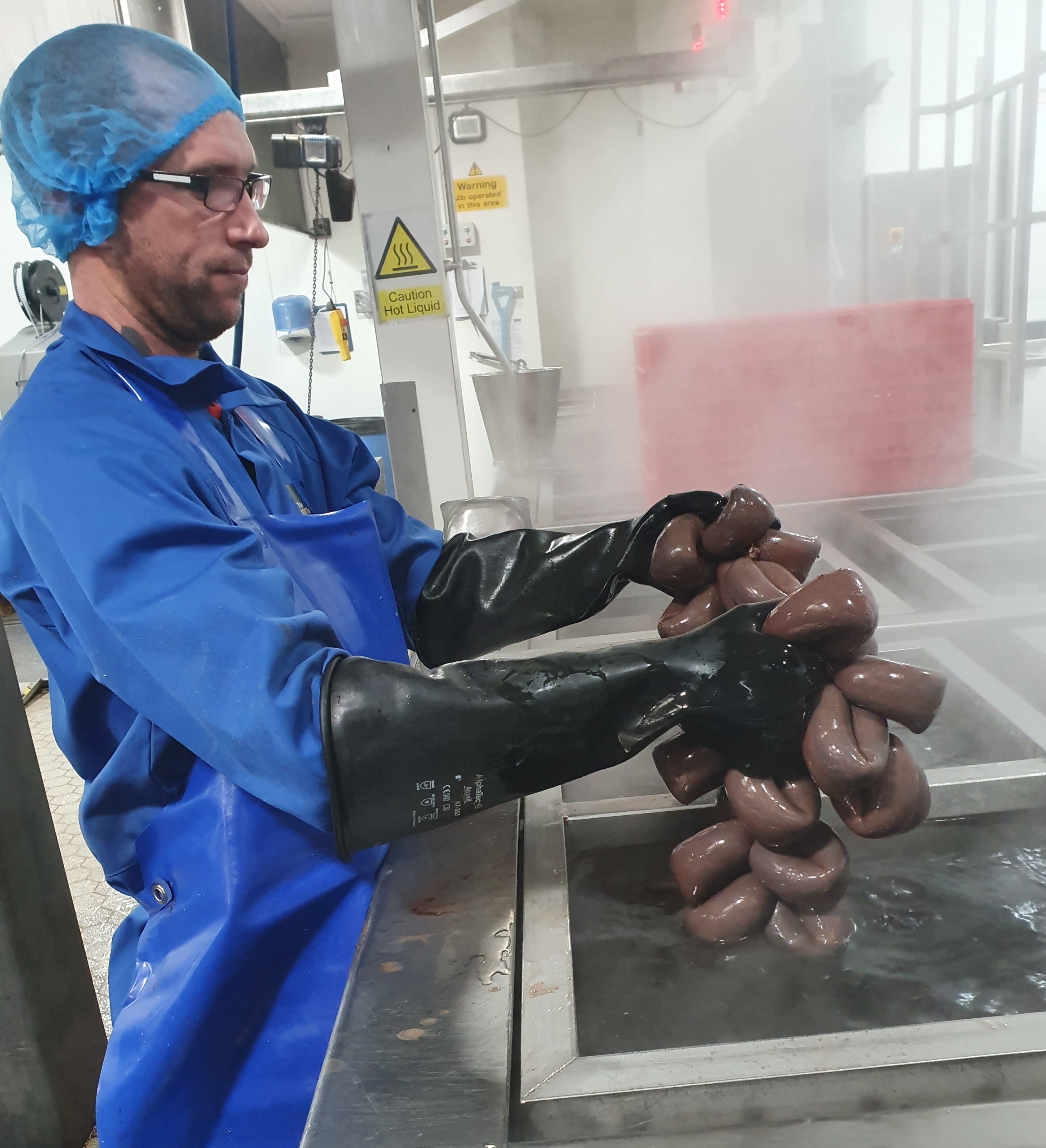
A chocolate maker, supported by Made Smarter, is poised to experience a game-changing productivity increase by automating its manufacturing process.
Ye Olde Friars (Friars), based in Cumbria, started making its own brand of premium chocolates by hand last year, after nearly 100 years of retailing confectionary products.
Now to meet increasing demand and to accelerate growth, the third-generation family business is adopting a process solution which will automate the labour intensive element of its production line.
The investment will enable Friars to increase its output from 30kg per day to 250kg - an increase of 733% - with significant scope to scale up production.
The automation will make it almost three times cheaper to produce the same amount and maintain a consistent quality.
View the case studyOur ambition is to become one of the UK’s largest manufacturers of quality chocolates, but in order to do this we need to look to technology to enable us to scale up our operation while producing the highest quality possible.
Made Smarter’s support and advice has accelerated and derisked our investment in process automation technology which will take the brakes off our growth plans and transform our business.
Michael Webster, Managing Director of Ye Olde Friars
Friars started life as a cafe and catering business in 1927 before fully moving into retail in the 1970s with two shops in Keswick and Ambleside selling confectionery and giftware.
Over the last 30 years it has built a reputation as a chocolatier, sourcing a huge variety of premium products from the UK and Europe and selling through its website and shops.
In 2020 after struggling to find a reliable source of vegan chocolates, Friars began making their own.
Michael explained: “The market was there, but the lack of availability was hindering sales growth, so we recruited a reputable chocolatier and invested in some machinery to start manufacturing.”
Friars now has three chocolatiers producing up to 30kg of chocolates a day, 6,000kg annually, using an entirely manual process. However, scaling up production has become a challenge.
“Due to the handmade nature of the product, it is not efficient and not economically viable to scale it using the same methods and techniques.
“Without a consistent supply of quality chocolates manufactured by ourselves, we’re unlikely to realise our ambitions.”
Friars has already seen the impact of technology on the business. Replacing its paper-based system with a cloud-based EPOS integrated with other business operations gave Michael and the team real-time visibility and helped them to spot sales trends, errors and wastage.
With the support of Made Smarter Friars is adopting a continuous tempering machine which is used to ensure the molten chocolate is the correct temperature.
The moulds for the chocolate are fed into a loader which connects into a SELMI One Shop Depositor. This automatically fills the moulds with chocolate and then feeds it along a 4m cooling tunnel.
The chocolate is then demoulded by hand, enrobed by chocolate before being manually decorated and refrigerated.
Michael said: “The human element is at the start and the end of the process, making up the recipe and then hand finishing the product. The digital machinery will replace the manual, repetitive, time-consuming and sometimes painful process in between.”
The technology will enable the team of three chocolatiers to produce up to 250kgs per day, seven times more than is currently possible.
The machinery is capable of making 90kg of chocolates per hour, as the business scales up production.
By reducing the labour involved in the manufacturing process, a kilogramme of chocolate will be two and half times cheaper to produce, increasing profitability significantly.
This extra productivity will allow Friars not only to satisfy its own direct sales requirements but also to wholesale.
“In the past we’ve had to turn down wholesale requests, due to our lack of capacity,” Michael said. “Our investment will enable us to capitalise on those new opportunities and react quickly to large orders, while complying with Regulations and giving us a competitive advantage.”
The one-shot machine ensures quality consistency in the whole process, from the thickness of the chocolate shell to the amount of filling contained within each chocolate, reducing defects and waste to negligible amounts.
With the increase in productivity, Friars’ head chocolatier will be able to devote more time on the research and development of new products.
Friars’ adoption of this new technology has started a digital transformation which will see it invest in a new factory and distribution centre near to the motorway in Penrith.
Other plans include software to integrate its website, EPOS and dispatch process, and processes to capture production data for analysis.
“The retail sector is going through an uncertain time, so we need to secure our future,” Michael said. “Made Smarter has given us real confidence that our approach is the right one.”








